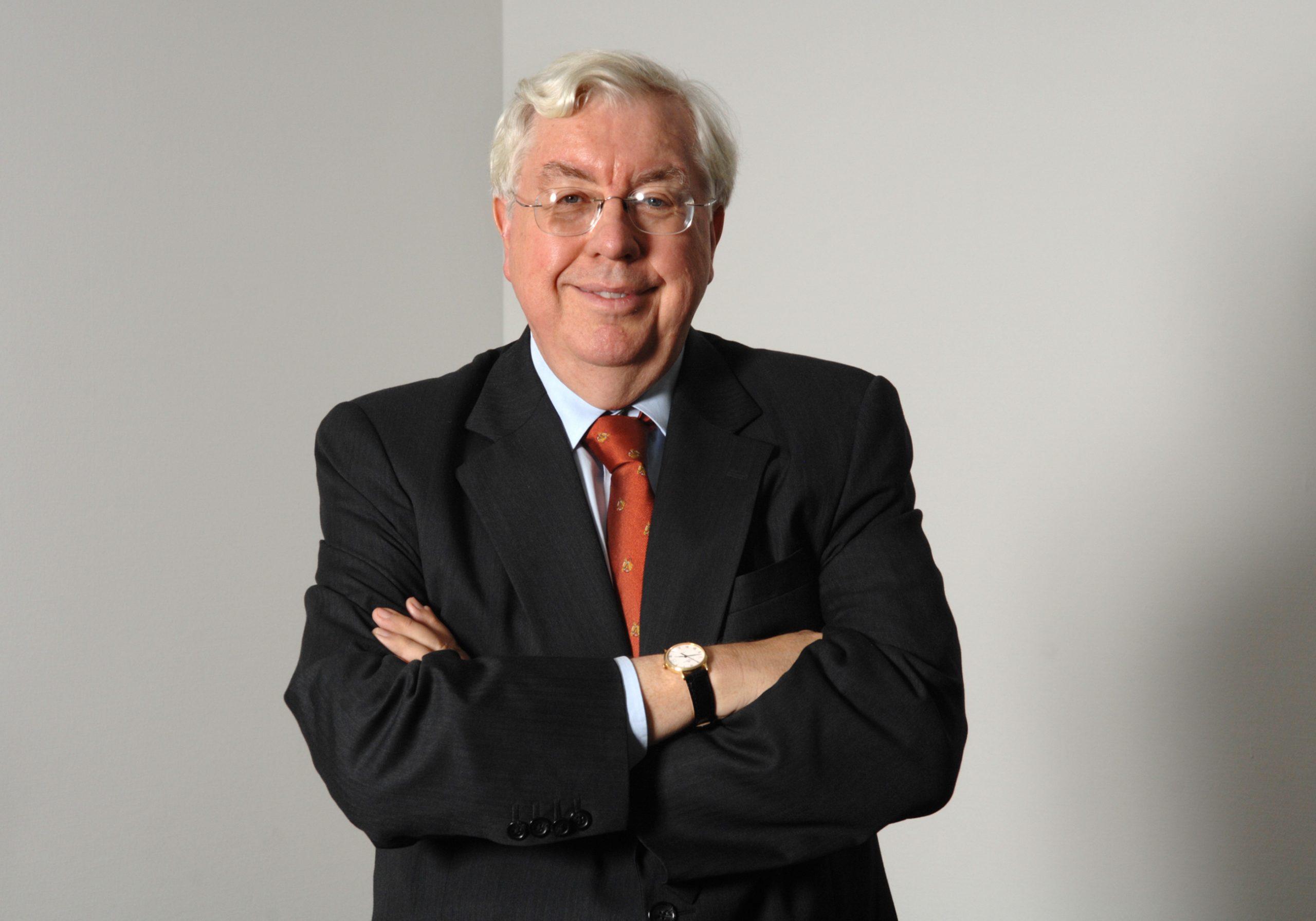John C. Kornblum, distinguished ambassador in residence and writer in residence for the Max Kade Center for European & German Studies, died Dec. 21, 2023, in Nashville. He was 80.

Kornblum, former ambassador to the Federal Republic of Germany and assistant secretary of state, joined Vanderbilt in March 2023. He played a key role in Vanderbilt’s second Summit on Modern Conflict and Emerging Threats in April 2023. An esteemed diplomat, statesman and scholar, Kornblum also was involved in ongoing initiative to help grow Vanderbilt’s international reputation and expand the university’s global influence.
“Vanderbilt, the diplomatic corps and the world have lost a great man,” Chancellor Daniel Diermeier said. “He was one of the essential architects of geopolitics in Germany and beyond during the second half of the 20th century. He also was an influential teacher and mentor, including to me, in the too-brief time that he was part of our campus community.”
The grandson of German immigrants who was fluent in the language, Kornblum began his diplomatic career in Hamburg, Germany, in 1964. In 1985 he was appointed United States minister and deputy commandant in Berlin. While in that position, Kornblum orchestrated the iconic appearance of President Ronald Reagan at the Brandenburg Gate in June 1987, where the president famously exhorted the communist leader of the USSR, Mikhail Gorbachev, to “Tear down this wall.”
He continued his diplomatic career as the deputy United States permanent representative to NATO in Brussels from 1987 to 1991 before serving as the first American ambassador to the Organization for Security and Cooperation in Europe from 1991 to 1994. His efforts included integrating Eastern European nations and former Soviet Republics into western structures and making the first diplomatic attempts to prevent war in the Balkans.
As senior deputy assistant secretary of state for European affairs and assistant secretary of state from 1994 to 1997, Kornblum worked on enlarging NATO and the European Union, with special arrangements for Russia and Ukraine. He also served as deputy chief of the Bosnian peace negotiations and was special United States envoy to the Balkans from 1995 to 1997.
His final diplomatic role was as United States ambassador to Germany, becoming the first American ambassador to serve in a united Germany since 1941. In this role, he oversaw the 1999 re-opening of the U.S. embassy in Berlin. It had last operated in Bonn, the former capital of West Germany.
For his work in the Foreign Service, Kornblum received multiple honors, including the U.S. Department of State Secretary’s Award, a medal of honor from OSCE and a silver medal from the American Chamber of Commerce in Germany. He also was named an honorary citizen of Sarajevo in Bosnia and Herzegovina.
Between the end of his diplomatic career and his start at Vanderbilt, Kornblum amassed transatlantic business experience as chairman of the investment bank Lazard Freres Germany from 2001 to 2007 and later as adviser to Bayer AG, Thyssen-Krupp Technologies, Motorola Europe, Macquarie, Russell Reynolds, Management Circle, Accenture Germany and Pfizer. He also was involved in the nonprofit sector, lending his expertise to the American Academy in Berlin, the English language public service radio station KCRW Berlin and the John F. Kennedy Atlantic Forum, an organization dedicated to furthering transatlantic entrepreneurial dialogue.
All these experiences combined to give Kornblum remarkable insight and judgment, according to his Vanderbilt colleague Thomas A. Schwartz, distinguished professor of history, professor of political science and European studies and director of undergraduate studies in the Department of History.
“John Kornblum had a profound historical consciousness about America’s role in the world, and a conviction about its importance to international peace and stability,” Schwartz said. “His wise counsel and commentary on our contemporary crises will be profoundly missed. On a personal level, I also greatly appreciated his kindness and interest in Vanderbilt.”
Among Kornblum’s final engagements was speaking to Schwartz’ Cold War history class during the fall 2023 semester.
“The students hung on his every word as he conveyed the significant issues of the Cold War from his personal experience as a negotiator and diplomat,” Schwartz said. “Vanderbilt has lost a remarkable teacher as well as our first distinguished ambassador in residence.”
Kornblum is survived by his wife, Helen, and two children, Alexander, BA’10, and Stephen, BA’13.
A memorial service for Kornblum will be on Saturday, Jan. 27, at 2 p.m. at Westminster Presbyterian Church.
